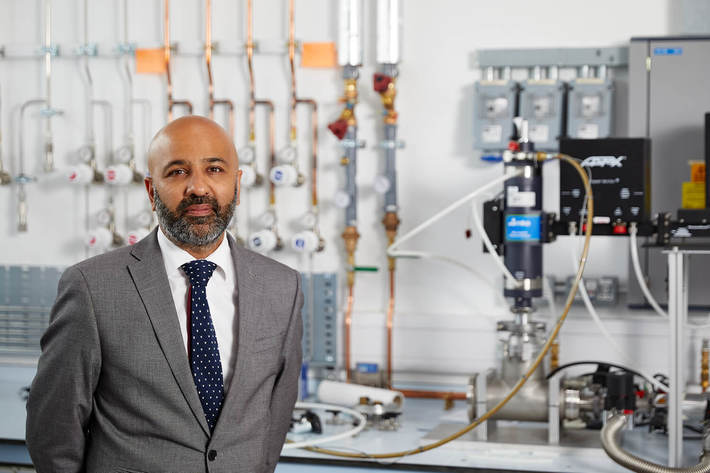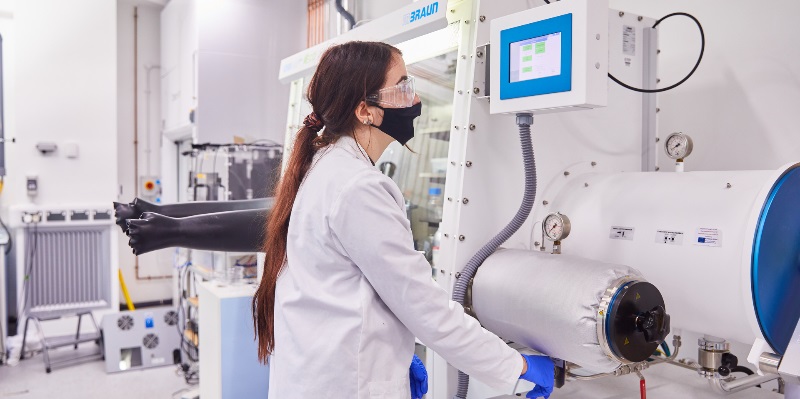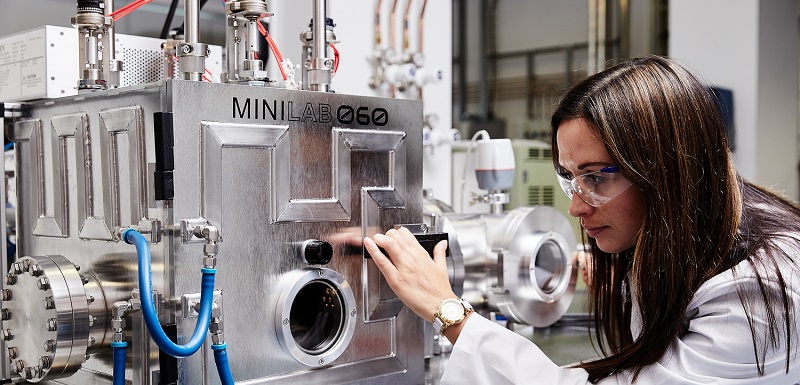Opinion | Monday, 22nd February 2021
What part will hydrogen play in helping us achieve carbon net zero?
Amer Gaffar discusses the role of hydrogen in a net zero world at the Manchester Science Festival

By Amer Gaffar, Director of Manchester Metropolitan University’s Fuel Cell Innovation Centre.
The Ambition for Hydrogen
We all know that we must start thinking about how we heat our homes, fuel our vehicles and generate power differently, in order to achieve ambitious goals to become carbon net zero.
But the shift away from fossil fuels is going to take more than just a single solution. To work, it will take a multi-vector approach. We will need to see a variety of technologies including solar power, wind power, batteries and many other green innovations, working together to create cleaner cities, regions and countries.
One of those technologies is hydrogen and fuel cells.
At the end of last year, the UK Government outlined its 10-point plan for a green industrial revolution, with hydrogen being one of those 10 points. Later this year, they are set to release their Hydrogen Strategy for the UK, which will set a low carbon standard for hydrogen production.
The UK Government is recognising the potential of hydrogen as a fuel source and the part it will play in combatting the climate emergency, but what people don’t realise is that hydrogen is not a new solution – fuel cells are not new technology. But, this area still needs research and development in order to support the transition to carbon net zero.
The ambition around hydrogen fuel cell technology is about scale, and that is what researchers are currently developing, cheaper and more efficient ways in which to use hydrogen at a larger scale.
We are already starting to see how hydrogen is being implemented with the first UK homes set to be fitted with boilers and hobs that run on hydrogen rather than fossil fuel gas.
This is just the first stage of implementing hydrogen as a source of green energy into our homes.
These homes will use 100% hydrogen, which is a completely safe and sustainable fuel source, with the only by-product being clean water. They will run on tanks of hydrogen, which will be delivered on-site, as opposed to using the local gas grid, which still uses harmful fossil fuel gas.
These developments are incredible, and shows that we are taking steps in the right direction, but more work is needed to be able to power vast numbers of homes using hydrogen, sustainably.
At the Manchester Fuel Cell Innovation Centre, we are working with companies including Cadent Gas to push this forward and see the first homes in the world to use green hydrogen through a local gas grid, with plans to move ahead with this just next year.
As well as playing a role in our gas networks, hydrogen can also be used to power transport, including passenger vehicles and heavier goods vehicles.
But to get to this point we need to continue achieving small milestones. It will take changes in policy, research, involve skills and training and innovation in infrastructure to get us there.
Climate change and air quality are a global focus, and hydrogen and fuel cells are increasingly being recognised as a solution along with other technologies. But we will definitely need national and international collaboration to make our ambitions a reality, as the agenda for net zero is a global one and the opportunity is too great to think about this ourselves without international support.
Action in the North West
At the University, and in the North West as a whole, we are working hard to contribute to the decarbonisation of the region and ensure hydrogen technology is playing its part in these plans.
Net Zero North West (NW) is a group of industrial organisations who are rising to the challenge of becoming the UK’s first low carbon industrial cluster by 2030.
Led by industry, the cluster is driving investment into the net zero economy and our post COVID-19 green recovery. This will create thousands of jobs and see over £4bn invested in the region.
The cluster is approaching the challenge around infrastructure, policy and skills, treating this as one whole challenge and not each area separately, which is what is needed.
Manchester Metropolitan will be leading on the skills pathway for Net Zero NW, which will allow us to work with the industrial, academic and skills development sectors to truly map the path to industrial decarbonisation with the development of the skills and opportunities for people alongside.
Overall, a lot of great work is happening around hydrogen and we are likely to hear a lot more about the topic of hydrogen in the coming months and years.





